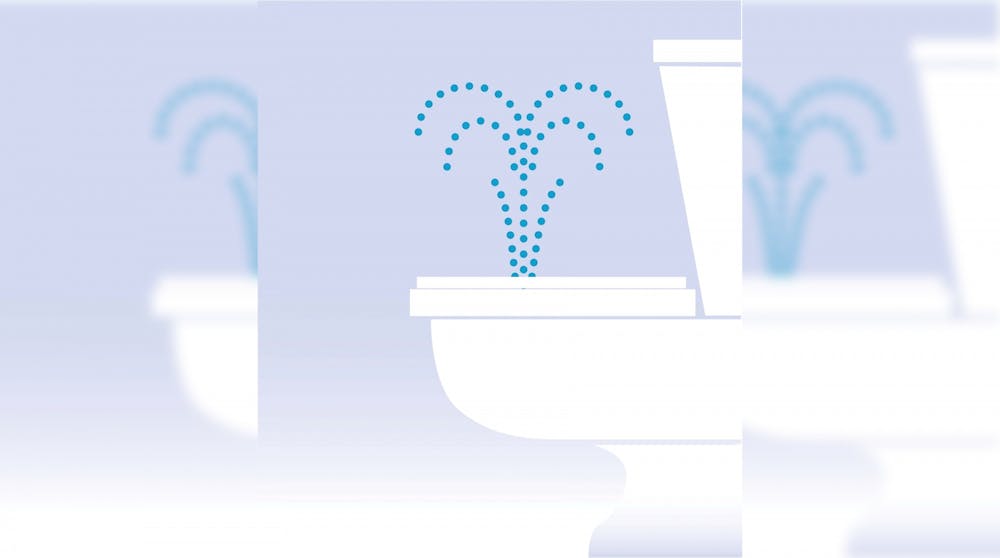The COVID-19 outbreak has led to the stockpiling of masks, hand sanitizer and toilet paper around the country. Bloomington residents have reported toilet paper shortages at Target, Kroger and Walmart. Charmin’s online store is temporarily out of stock of all items.
Thankfully, whether you’re worried about going to the bathroom during a self-quarantine or just trying to buy toilet paper, you have another option: a bidet.
Bidets, plumbing features used to wash oneself after using a toilet, are most common in South Europe, Japan, Korea and the Americas. But the bidet has never caught on in the United States. Instead, we used nearly 3.5 billion kilograms of toilet paper — or one ounce per person per day — in 2018, resulting in the loss of millions of trees.
Given the ongoing shortages and climate crisis, U.S. consumers should abandon toilet paper for bidets.
Toilet paper is harmful to the environment. Producing toilet paper requires pulping wood from trees. This process uses large amounts of water and hastens climate change by reducing the number of carbon-storing trees. With the threat of climate change looming large, why the hell are we still using so much toilet paper?
American consumption habits, from eating more meat to buying more clothes to using more toilet paper than the rest of the world, exacerbate the climate crisis and are unsustainable for our future.
Analysis from Ethical Consumer magazine found in 2019 that toilet paper is actually becoming less sustainable, with major manufacturers opting to use less recycled paper than in previous years. Kimberly-Clark, the largest supplier of toilet paper in the U.S., reduced recycled material from 30% in 2011 to 23.5% in 2017. The result is more logging for toilet paper.
The production of one ounce of tissue paper, such as toilet paper, that is 25% recycled requires 1.1 gallons of water and 0.6 pounds of carbon dioxide-equivalent in greenhouse gas increases, according to the Environmental Paper Network.
A bidet, however, avoids the environmental costs of toilet paper. A single use requires far less than a gallon of water and zero paper products.
Sales of bidets in North America are expected to increase 9% annually through 2023 due to growing interest in reducing paper consumption, according to 360 Research Reports. As the climate crisis worsens, we should all join in buying one.
The U.S. emitted roughly 16 tons of carbon dioxide per capita in 2018, according to a 2019 United Nations report. Despite only making up 4% of the global population, the U.S. was responsible for nearly 15% of global carbon dioxide emissions. America's emissions increased by 3.4%, its largest jump in eight years, even as a near-record number of coal power plants ceased operation.
To reverse the trend, Americans should start by considering how we clean ourselves.
The U.S. imports 46% of its toilet paper from Canada and 23% from China, according to the Observatory of Economic Complexity. In recent decades, emissions have nearly tripled in China, according to the United Nations.
Maintaining the world’s forests is essential to combating climate change, but Americans’ staggering toilet paper consumption threatens their future.
The boreal forest in Canada produces much of the pulp used in American toilet paper, according to a 2019 report from the Natural Resources Defense Council. U.S. toilet paper consumption has severely damaged the forest.
The Canadian boreal forest stores at least 12% of the world’s carbon and removes carbon dioxide equivalent to the annual emissions of 24 million passenger vehicles each year, according to the report. Between 1996 and 2015, 28 million acres of the forest, roughly the size of Ohio, were logged. Unfortunately, more than 90% of this logging was done by clearcutting, which can take forests a century to recover from.
According to scientists at the Swiss university ETH Zurich, planting trees across the world is the most effective way to address the climate crisis because trees capture atmospheric carbon dioxide. Reducing the number logged for toilet paper production would be a good start.
Bidets can be found at affordable prices and promise to save money on toilet paper costs in the long run. Amazon sells simple bidet attachments for as little as $25, while established bidet retailer TUSHY offers slightly more expensive options. Bidets are also healthier than toilet paper because they more effectively remove bacteria and eliminate the need to use hands.
For the climate’s sake, you should consider buying one.
Kyle Linder (he/him) is a junior studying journalism and international relations. He plans to pursue a career in media.






